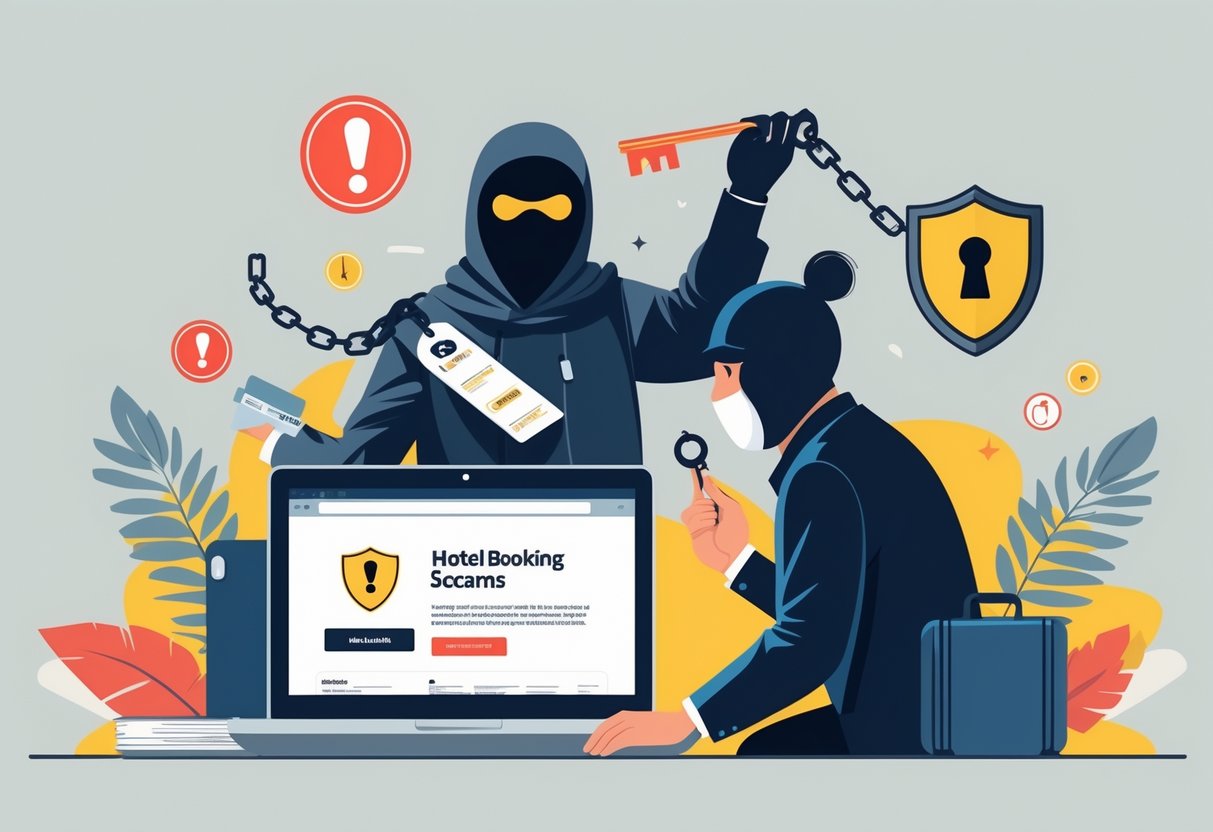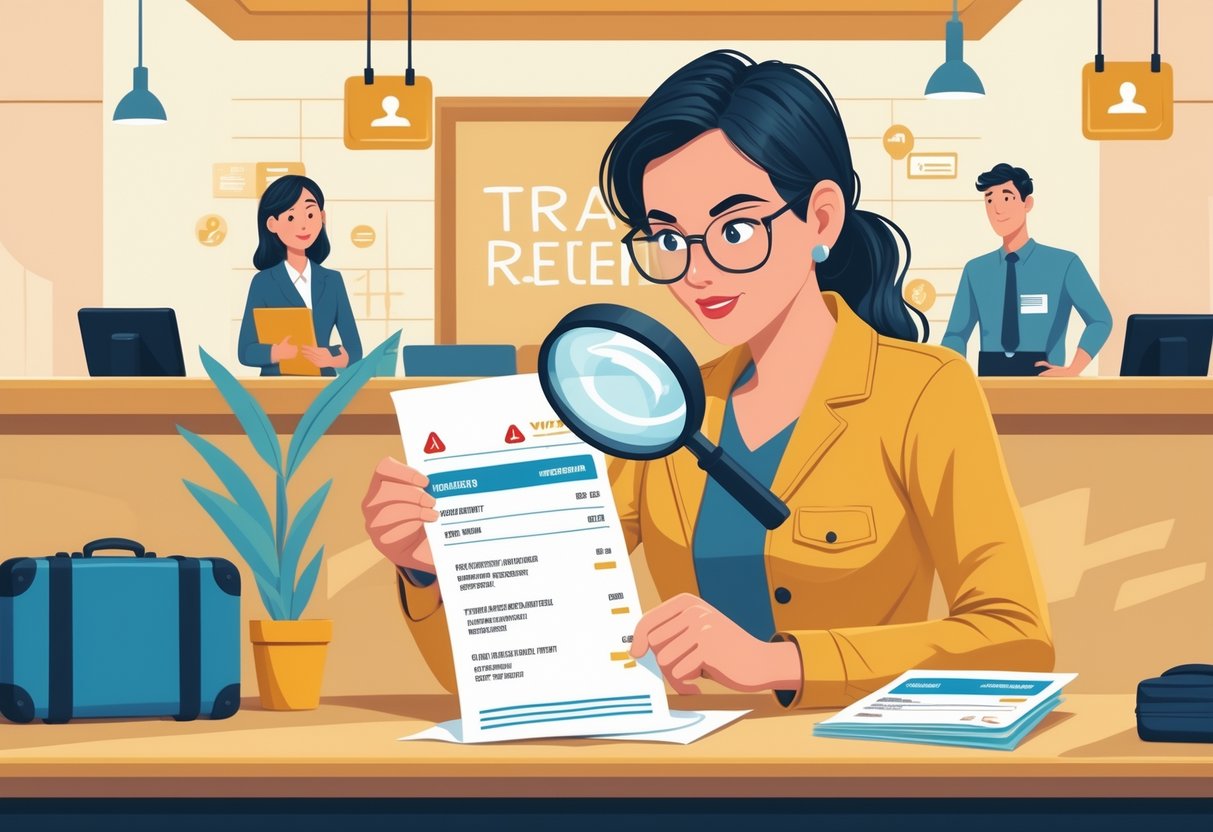
Protecting Your Travel Investment
Travel scams targeting hotel bookings are increasingly sophisticated, making careful planning essential. Travelers can reduce their risk by being vigilant during the reservation process and by selecting reliable payment methods to safeguard their funds.
Best Practices for Safe Booking
Booking through official hotel websites or reputable travel agencies dramatically reduces the likelihood of encountering fraud. Researching potential lodging options before purchase is critical; look for trusted reviews and confirm the legitimacy of the site or agency.
Comparing prices directly on the hotel’s own site can help spot suspiciously low offers often linked to travel scams. Never rely solely on email or social media ads for offers.
If an offer appears too good to be true, verify its details by contacting the hotel directly using information from its official site. Consult third-party review sites for recent guest feedback and watch for warning signs like poor grammar, unclear cancellation policies, or inconsistent branding.
Travelers should safeguard their loyalty and reward accounts, enabling two-factor authentication when available. Avoid entering personal information on unsecured booking platforms.
The City National Bank guide on travel fraud and RBC Wealth Management’s advice offer more tips for evaluating booking legitimacy.
Using Secure Payment Methods
Always pay for hotel booking transactions using secure, traceable methods such as credit cards or trusted digital wallets. Credit cards generally offer built-in fraud protection, making it easier to dispute and recover funds if unauthorized charges occur.
Avoid using wire transfers, prepaid debit cards, or cash, as these methods often lack recourse if something goes wrong. It’s vital to confirm that the booking site uses HTTPS and displays security certificates before entering any payment details.
Travelers should also keep detailed records of all bookings, emails, policies, and payment receipts in case a dispute arises. According to the PaymentCloud guide on travel agency fraud, using secure payment systems not only limits financial risk but can help detect potentially suspicious activity.
Consider opting for added protection tools such as virtual credit card numbers for online purchases or enabling transaction alerts. Protecting payment data and regularly monitoring card statements will support early fraud detection and enable quick responses to unauthorized transactions.
How to Identify Safe Hotel Booking Sites
Safe hotel booking begins with careful evaluation of where and how reservations are made. Not all travel booking sites maintain the same standards, so knowing what to look for can protect travelers from scams and financial loss.
Recognizing Legitimate Booking Platforms
Legitimate hotel booking platforms like Booking.com and Tripadvisor have well-established reputations and secure website designs. Always check that the site’s web address begins with https:// and displays a padlock symbol—this means the connection is encrypted and safer for entering payment information.
Official or authorized third-party sites will feature clear company details, a physical address, and accessible customer service contact options. Watch for generic domain names or poor website design, which are common red flags.
Some fake platforms may create convincing imitations of popular brands, so double-check URLs for misspellings or extra characters. Trusted platforms are transparent about their booking terms, cancellation policies, and any fees.
If a booking site asks for payment via wire transfer or lacks normal credit card payment options, that’s a major warning sign of fraud. Refer to advice on how to avoid hotel booking scams for more guidelines on identifying safe websites.
Check Reviews and Ratings
User reviews offer direct insight into others’ experiences with both booking platforms and hotels listed. Sites such as Tripadvisor allow travelers to share authentic feedback, making it easier to spot repeat complaints or reputation issues tied to specific booking sites.
Look for consistent, verified reviews on multiple platforms before trusting a travel booking site. Authentic reviews often share details about payment processes, communication quality, and what happened if changes or cancellations were needed.
Unusually positive reviews, especially if posted in bulk over a short period, may be signs of fake feedback. Independent review sites and consumer watchdogs, including the Better Business Bureau, can also help confirm a site’s legitimacy and alert potential travelers to scam activity.
Cross-referencing opinions and ratings can make shopping for hotel deals significantly safer.
Spotting Hidden and Inflated Fees

Hidden fees and inflated prices can turn a reasonable hotel stay into an unexpectedly expensive experience. Understanding how these charges appear and why they’re used is essential for anyone looking to protect their travel funds and avoid common pitfalls with hotel bookings.
Common Hidden Charges
Hotels often add undisclosed costs that are only discovered at checkout. Some of the most frequent hidden charges include:
- Resort fees: Daily mandatory charges for amenities like pools or gyms, even if guests don’t use them.
- Wi-Fi or internet fees: Sometimes internet access is advertised as free but only available in specific areas.
- Parking fees: Many properties charge per night for parking, even in suburban or rural locations.
- Early check-in/late check-out fees: Checking in before the official time or leaving after checkout can result in unexpected charges.
- Housekeeping or service charges: Some hotels add extra costs for daily cleaning or gratuity.
- Mini-bar and in-room safe fees: Items and amenities that seem complementary may end up being billed separately.
Travelers should always review the booking details and ask for a full breakdown of fees in advance.



